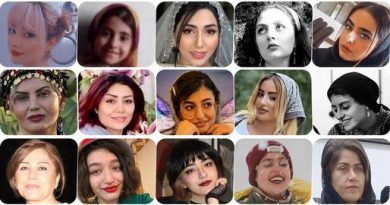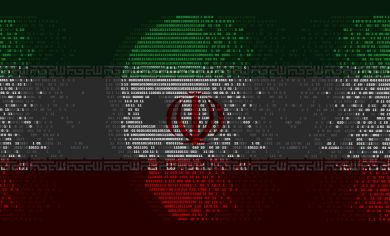In a nation gripped by repression, where speaking out against injustice often means facing prison, Iranian women have become the heart of the resistance. Despite being silenced, beaten, and locked behind the high walls of notorious prisons like Evin and Qarchak, these women remain unshaken. Their voices echo beyond the cells, fueling a national movement with hope, bravery, and the promise of freedom.
This article tells the powerful story of how Iran’s imprisoned women—activists, journalists, mothers, students—continue to inspire a nation despite their chains. They are more than prisoners; they are symbols of resilience.
1. A System Built to Silence Women
The IRGC’s Role in Repression
The Islamic Revolutionary Guard Corps (IRGC) plays a pivotal role in suppressing dissent, particularly targeting women who challenge the regime.
• Mandatory hijab laws,
• Censorship of female journalists,
• And violent crackdowns on peaceful protests are just some of the tactics the IRGC uses.
Those who resist face harsh consequences:
• Lengthy prison sentences,
• Solitary confinement,
• Psychological torture, and
• Limited access to legal representation.
Yet, even from behind bars, these women persist.
2. Notable Women Behind Bars
Narges Mohammadi
A Nobel Peace Prize winner, Narges Mohammadi has been arrested multiple times for her activism.
• She advocates against the death penalty and documents prison abuses.
• Even while imprisoned in Evin, she smuggled out letters detailing torture and solitary confinement conditions.
Nasrin Sotoudeh
A human rights lawyer known for defending women arrested for removing their hijabs.
• She was sentenced to 38 years in prison and 148 lashes.
• In prison, she conducted hunger strikes to protest the treatment of political detainees.
Sepideh Gholian
A labor rights activist, Gholian has been repeatedly arrested, tortured, and forced to give televised confessions.
• Upon her brief release, she returned to Evin Prison chanting, “Death to the oppressor,” symbolizing unbroken resistance.
3. Acts of Courage Behind Bars
Letters to the Nation
Despite tight surveillance, women detainees send letters to the outside world:
• These letters speak of hope, pain, resistance, and a vision of a free Iran.
• They become rallying cries, shared widely on social media and news outlets.
Hunger Strikes
Many imprisoned women have undertaken hunger strikes to protest:
• Lack of medical care,
• Abuse and torture,
• And unjust prison conditions.
These acts become symbols of moral defiance and remind the world that these women are not victims—but warriors.
4. The Psychological War in Iran’s Prisons
The regime tries to break their spirits through:
• Isolation from family,
• Interrogations under sleep deprivation,
• Threats of harm to children and spouses,
• Public humiliation through forced confessions.
Yet, their resilience only grows. These women often serve as mentors to other inmates, providing education, emotional support, and even leading informal resistance networks inside prison.
5. Global Impact and Recognition
Nobel Peace Prize & International Awards
Women like Mohammadi and Sotoudeh have gained global recognition, proving that:
• The regime may silence them inside Iran,
• But the world is still listening.
Diaspora Advocacy
The Iranian diaspora has played a vital role in amplifying these voices.
• From global protests to media campaigns, their stories are being shared in Berlin, New York, Paris, and beyond.
6. How These Women Inspire a Nation
Despite the regime’s efforts, imprisoned women:
• Remain icons of national unity,
• Inspire younger generations, especially women and girls,
• And demonstrate that even in confinement, one can lead a movement.
Many Iranian protestors chant their names during demonstrations. Their faces are seen on banners. Their words are quoted in classrooms and social media. They have become moral beacons for an entire nation.
7. What Can the World Do?
International Pressure
Governments and human rights organizations must:
• Demand the release of political prisoners,
• Sanction IRGC officials responsible for abuses,
• Increase pressure through UN resolutions and diplomatic channels.
Support From Tech and Legal Communities
• Provide digital security tools to activists still free,
• Fund legal defense for women imprisoned unfairly,
• Help build platforms that broadcast their voices globally.
Conclusion: Hope is Stronger Than Bars
Prison is meant to isolate, break, and silence. But in Iran, it has become a school of resistance. The women behind bars are not forgotten. They are guiding lights, shaping the moral direction of Iran’s freedom movement.
Join Our Newsletter!
Stay informed with the latest updates, news, and ways to take action in the fight for justice and global security. Sign up now to get updates delivered straight to your inbox!





